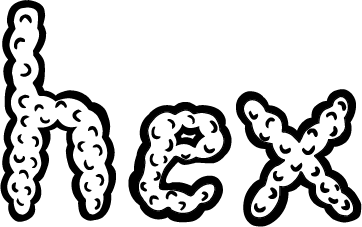Through the window, I observe the man from the jackets of my overdue library books. He broods in a cafe booth. A bell jingles as I walk inside. He glances at me idly. I proceed to his corner and shove a firm hand forward.
He hesitates, wets his lips with his tongue, and says, “I don’t shake.”
“I read your books as a kid,” I smile. He tilts his liver-spotted chin to the right, and the black crevice tucked between deflated cheeks curves into a weak smile. I ask, “Mind if I sit for a moment?” He gestures to the empty seat with cloudy, pickled eyes. “I’m curious about your career,” I explain, taking my seat.
“I remember less and less,” he says, wearing the same empty gaze as my grandmother in the nursing home and my twenty-year-old dog with a broken leg, baking beneath the sun.
I smile with expired admiration. “This just isn’t how people meet them.”
He asks, “It’s not how people meet who?”
“This isn’t how people meet their makers.”
He studies me and grunts sourly, “What do you want?”
I could lunge across the table and strangle him or follow him to his car, shove him into the cement, and kiss his dentures with my boot.
“I loved to read your stories when I was young,” I say. He nods smugly, swollen cheeks blushing. “I slept and woke up inside nightmares full of your monsters regularly. I dreamt of your villains so often that I saw them in daylight.”
“I wrote fiction.” He thumps a fist on the plastic table. Damp frayed bandaids loosen around his fingers. His yellow sores peek at me from around the bandages like the eyes of a sick cat. I shut my eyes. I don’t want to see his words anymore. I don’t want to remember anymore.
When I first read his words, I was a child, swimming before fishing, shooting squirrels, and tucking stolen tobacco into my bottom lip. I was flat-chested and dark-skinned, learning to capture a lake’s acoustics in a toe-curling howl. My innocence died promptly the evening of my first party. I wore my mother’s lipstick. I was a drunk kid, singing along to songs I thought I’d always know.
I tell him, “Because of your stories, I believed that one day something would come for me. You planted a specific terror in me.”
I lost my grip on my beer, and it shattered on the driveway. I was thinking about what I learned in biology class, and that if the party was a cell, the hosts were ribosomes. The drunks were mitochondria. The neighbors outside who were calling the police were viruses. I was cell waste strolling home in wobbly heels I’d never worn before. The eeriness of that witching hour reminded me of his unsettling words that I’d read in the safe brightness of public libraries.
I ask, “Why did you want to scare children?”
I hunched over my knees, vomiting rum and tortilla chips onto the side of the road. I heard a crunch in the dense brush ahead. With a slack jaw, I scanned the woods for my stalker. My vision spun and pulsed. From my purse, I pulled the pocket knife my father gave me and flicked it open. I rose with the bloated tilted slouch of the dead.
“I believe children must explore their relationship with fear before adulthood,” he says. “This world is too scary to enter blindly.”
My body ached like a rotting tooth, but I grounded my toes and bent my limbs, prepared to pounce. Someone or something followed a girl in the night. I imagined slurping space aliens with tentacles of teeth and an escaped test subject from a government facility. A zombie lurked. A vampire thirsted. I lunged into the swaddling darkness with a leading blade and unzipped a heaving throat. My skirt caught the first wave of blood and my heels drank the rest before I laid the collapsing body over a large stone. I was no longer a girl.
I tell him softly, “There’s no taking back what we did.”
He assesses the amount of space between us although there is no safe distance. I ram the mouth of the gun into his warm knee beneath the table. His indifferent glare becomes the horror of an armadillo bouncing down the highway. My index finger drifts over the trigger eagerly; I ask, “Have you ever felt near the climax of someone else’s story?”
________
Cameron Bocanegra is a queer Latina Texan who works remotely as a professional writer. She studied English education and journalism at Baylor University and graduated in 2020. You can find her at cambocanegra.com.
